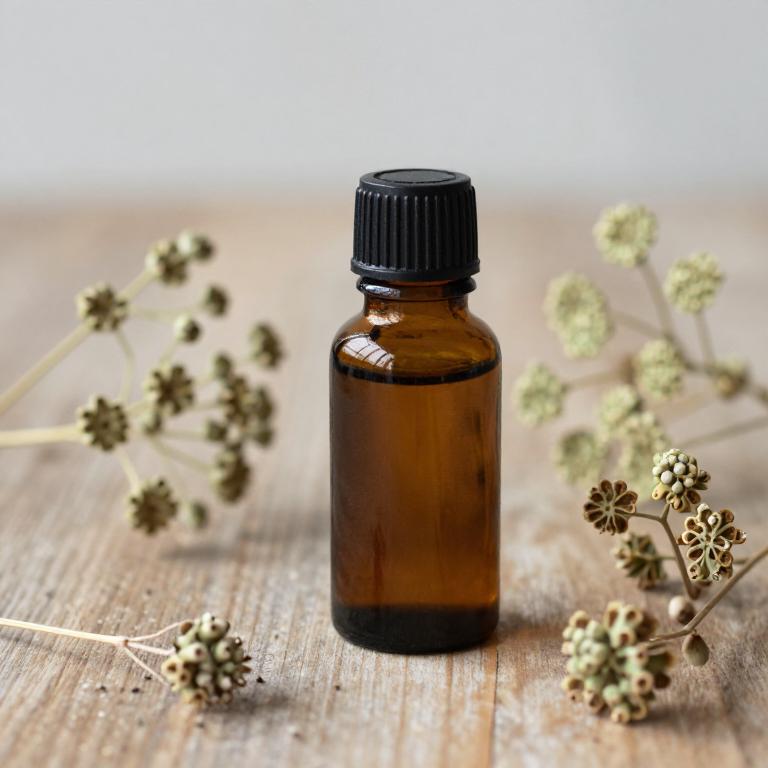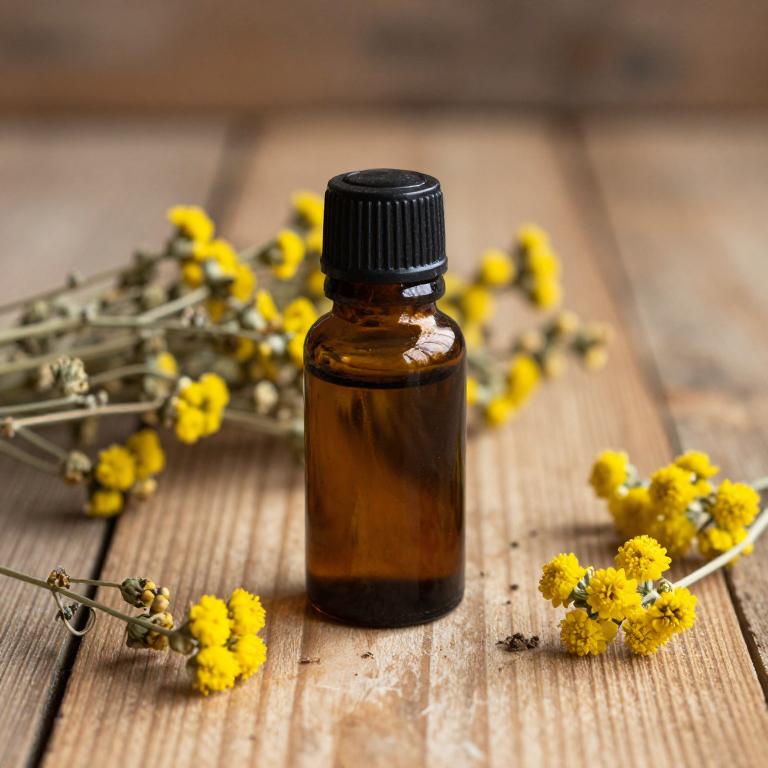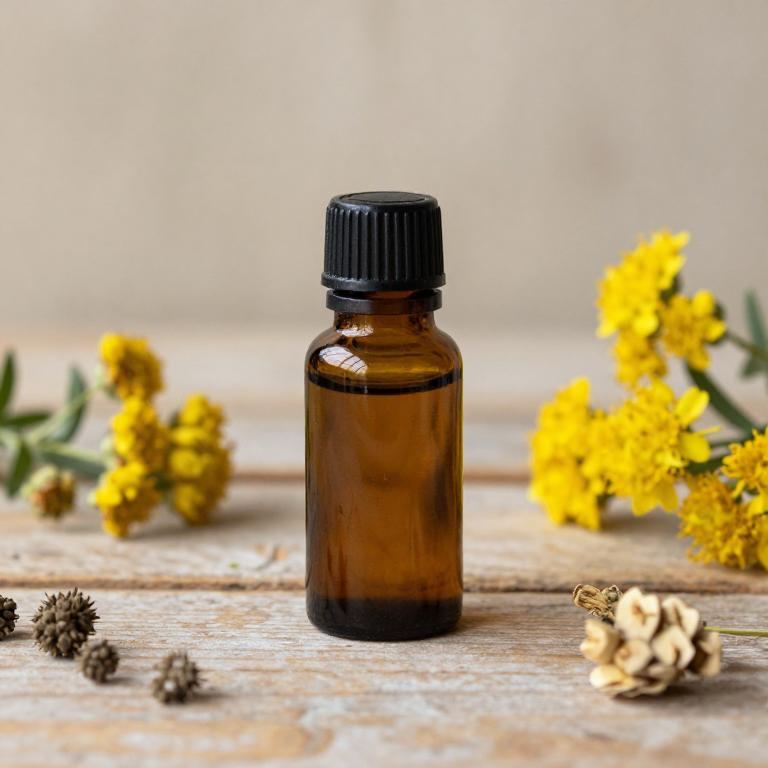10 Best Herbal Essential Oils For Depression

Herbal essential oils have gained attention for their potential therapeutic benefits in managing depression, offering a natural alternative to conventional treatments.
Oils such as lavender, chamomile, and bergamot are commonly used due to their calming and mood-enhancing properties. These essential oils can be inhaled through diffusion, topical application, or aromatherapy, which may help reduce symptoms of anxiety and improve emotional well-being. Research suggests that certain essential oils may influence neurotransmitter activity, promoting a sense of relaxation and balance.
While they are not a substitute for professional mental health care, they can serve as a complementary tool in a holistic approach to treating depression.
Table of Contents
- 1. Valerian (Valeriana officinalis)
- 2. English lavender (Lavandula angustifolia)
- 3. Lemon balm (Melissa officinalis)
- 4. Black pepper (Piper nigrum)
- 5. Rosemary (Rosmarinus officinalis)
- 6. St. john's wort (Hypericum perforatum)
- 7. Salvia (Salvia officinalis)
- 8. Ceylon cinnamon (Cinnamomum zeylanicum)
- 9. Turmeric (Curcuma longa)
- 10. Peppermint (Mentha piperita)
1. Valerian (Valeriana officinalis)

Valeriana officinalis, commonly known as valerian, is a perennial plant whose roots have been traditionally used for their calming properties.
The essential oil extracted from valerian is believed to have a soothing effect on the nervous system, potentially helping to alleviate symptoms of depression and anxiety. This oil contains compounds such as valerenic acid and sesquiterpenes, which may interact with neurotransmitter systems in the brain to promote relaxation and emotional balance. While research on its efficacy for depression is still emerging, some studies suggest that valerian essential oil may support mood regulation when used as part of a holistic treatment approach.
As with any herbal remedy, it is advisable to consult a healthcare professional before incorporating valeriana officinalis essential oil into a treatment plan for depression.
2. English lavender (Lavandula angustifolia)

Lavandula angustifolia, commonly known as English lavender, is widely recognized for its calming properties and is often used in aromatherapy to support mental well-being.
The essential oil derived from this plant contains compounds such as linalool and linalyl acetate, which have been shown to have mild sedative and anxiolytic effects. Studies suggest that regular use of lavender essential oil may help reduce symptoms of depression and anxiety by promoting relaxation and improving mood. It is typically used through inhalation or topical application, often diluted with a carrier oil for safe use.
While not a substitute for professional treatment, lavender essential oil can be a complementary therapy to support emotional balance and overall mental health.
3. Lemon balm (Melissa officinalis)

Melissa officinalis, commonly known as lemon balm, is a herb widely used in aromatherapy for its calming and uplifting properties.
Its essential oil, derived from the leaves of the plant, contains compounds like linalool and citral, which are known for their mood-enhancing effects. Studies suggest that Melissa officinalis essential oil may help alleviate symptoms of mild to moderate depression by promoting relaxation and reducing anxiety. When used in diffusers or applied topically, the oil can support emotional balance and improve overall well-being.
However, it is important to consult with a healthcare professional before using essential oils, especially for those with existing mental health conditions.
4. Black pepper (Piper nigrum)

Piper nigrum, commonly known as black pepper, contains essential oils that have been explored for their potential therapeutic effects on depression.
The essential oils derived from black pepper, particularly compounds like beta-caryophyllene and limonene, exhibit anti-inflammatory and mood-enhancing properties. These oils may support mental well-being by interacting with the body's endocannabinoid system and promoting neurogenesis. While research is still emerging, some studies suggest that aromatherapy with black pepper essential oil could help alleviate symptoms of mild depression when used as a complementary therapy.
As with any essential oil, it is important to use Piper nigrum oil safely and consult with a healthcare professional before incorporating it into a treatment plan for depression.
5. Rosemary (Rosmarinus officinalis)

Rosmarinus officinalis, commonly known as rosemary, is a herb whose essential oil has been widely studied for its potential benefits in alleviating symptoms of depression.
The oil contains active compounds such as cineole, camphor, and pinenes, which are believed to influence mood and cognitive function. Research suggests that rosemary essential oil may help reduce feelings of sadness and improve emotional well-being through its stimulating and uplifting properties. It is often used in aromatherapy practices to promote mental clarity and reduce stress, which can contribute to depressive symptoms.
While more clinical studies are needed, preliminary evidence supports the use of rosemary essential oil as a complementary therapy for managing depression.
6. St. john's wort (Hypericum perforatum)

Hypericum perforatum, commonly known as St. John's Wort, has been traditionally used for its potential antidepressant properties, and its essential oils derived from the plant are increasingly being explored for their therapeutic benefits.
These essential oils contain bioactive compounds such as hyperforin and hypericin, which are believed to influence neurotransmitter levels in the brain, potentially improving mood and alleviating symptoms of depression. While some studies suggest that St. John's Wort extracts may be effective for mild to moderate depression, the use of its essential oils is still under investigation due to their potency and potential interactions with other medications. The essential oils are often used in aromatherapy and topical applications, though their efficacy and safety for treating depression require further clinical research.
As with any herbal remedy, it is important to consult a healthcare professional before using hypericum perforatum essential oils, especially for individuals with existing health conditions or those taking prescription medications.
7. Salvia (Salvia officinalis)

Salvia officinalis, commonly known as sage, is a versatile herb that has been traditionally used for its medicinal properties, including its potential benefits for mental health.
The essential oils derived from sage contain compounds such as thujone, camphor, and cineole, which have been studied for their effects on mood regulation. Some research suggests that sage essential oils may help alleviate symptoms of depression by influencing neurotransmitter activity and reducing feelings of anxiety. However, it is important to note that while these oils show promise, they should be used with caution and under professional guidance due to their potent nature.
As with any herbal remedy, individual responses can vary, and it is recommended to consult with a healthcare provider before incorporating sage essential oils into a depression treatment plan.
8. Ceylon cinnamon (Cinnamomum zeylanicum)

Cinnamomum zeylanicum, commonly known as cinnamon bark, produces an essential oil that has been explored for its potential therapeutic effects on depression.
The oil contains compounds such as cinnamaldehyde and eugenol, which are believed to have mood-enhancing and antidepressant properties. Studies suggest that the aromatic compounds in cinnamon essential oil may help reduce symptoms of depression by promoting relaxation and improving emotional well-being. It is often used in aromatherapy to alleviate stress and anxiety, which are closely linked to depressive states.
While more research is needed, preliminary findings indicate that cinnamon essential oil may serve as a complementary therapy for managing mild to moderate depression.
9. Turmeric (Curcuma longa)

Curcuma longa, commonly known as turmeric, contains a bioactive compound called curcumin, which has been extensively studied for its potential antidepressant effects.
Essential oils derived from Curcuma longa are often used in aromatherapy to support mental well-being and alleviate symptoms of depression. These oils may help reduce inflammation and oxidative stress, which are frequently linked to mood disorders. Research suggests that the aromatic compounds in turmeric essential oils may influence neurotransmitter activity and promote a sense of calm.
While more clinical studies are needed, preliminary evidence indicates that Curcuma longa essential oils could be a complementary therapy for managing depression.
10. Peppermint (Mentha piperita)

Mentha piperita, commonly known as peppermint, is a widely used herb whose essential oil has been explored for its potential benefits in managing symptoms of depression.
The essential oil contains compounds like menthol and limonene, which are believed to have calming and mood-enhancing properties. Studies suggest that the aromatic inhalation of peppermint oil may help reduce feelings of anxiety and improve overall emotional well-being. Its stimulating effects can also help alleviate mental fatigue, which is often associated with depressive states.
While more research is needed, peppermint essential oil is increasingly being recognized as a complementary therapy for supporting mental health.